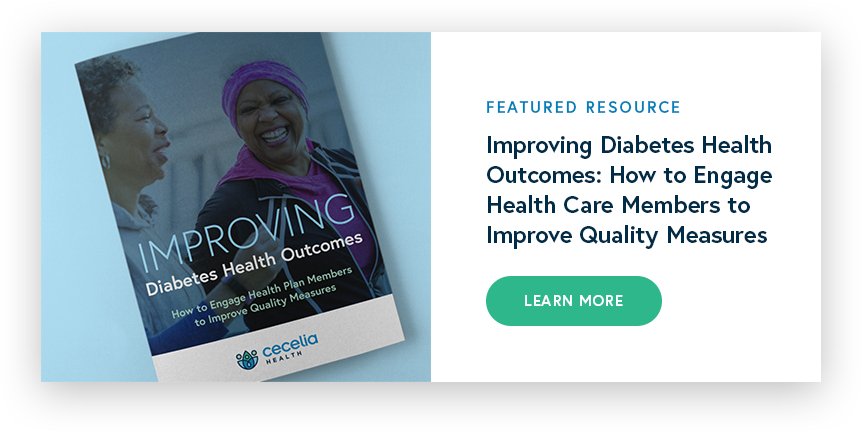Value-based care is a paradigm shift in the healthcare reimbursement structure as more and more payers and providers move their contracts away from fee-for-service arrangements. Health Care Transformation Task Force (HTTF) reports that by the end of 2017, 47 percent of its 14 members’ business was tied to a value-based model. That number is up from just 30 percent in 2015.
“There is growing evidence that value-based care leads to better health, better care, and reduced total cost,” said Fran Soistman, Executive Vice President and Head of Government Services with Aetna, of the HTTF report. The 14 HTTF members—a group of leading health care payers, providers, purchasers, and patient organizations—are committed to reaching a goal of 75 percent of their respective businesses operating under value-based payment arrangements by the end of 2020.
When it comes to value-based care for people with diabetes, the focus is on controlling costs, improving health outcomes, and increasing quality of care. The right approach is needed to support value-based programs and make them successful for patients, providers, and payers alike.
The following should be considered when working to improve quality measures for diabetes care in a value-based model.
Program Priority: Provide high value care
Impact and Approach: Help identify needs and treatment plan throughout transition of care
Program Priority: Improve health outcomes
Impact and Approach: Focus on A1C reduction, medication adherence, closing care gaps, and improving self-management confidence
Program Priority: Impact efficiency and coordination of care
Impact and Approach: Extension of care team to reinforce guidelines, care protocols, and processes between episodic encounters
Program Priority: Enhance member experience
Impact and Approach: Forming personal connections through empathetic trust-building; treating the “person inside the patient”
Program Priority: Value based purchasing
Impact and Approach: Support the implementation of the doctor’s care plan and help the providers meet targeted performance goals
Achieving Value-Based Program Priorities for Diabetes Patients
Achieving the program priorities discussed above can be a challenge. People with diabetes need comprehensive support services in order for health organizations to see positive results, yet internal resources and capabilities are often limited.
At Cecelia Health, we have successfully worked with health plans of all sizes to improve the health of their members with diabetes with direct, measurable impacts on Star, HEDIS, and Healthy Days measures. Our approach complements and integrates with existing client programs and resources and builds upon the successes and lessons learned with payer, provider, pharma, and device clients.
Cecelia Health focuses on helping individuals with diabetes set and achieve meaningful goals to improve overall health outcomes. This is accomplished with the support of Certified Diabetes Educators (CDEs) who work one-on-one with patients to deliver a personalized coaching program to improve self-management and drive behavior change.
Proven Outcomes of Cecelia Health Diabetes Coaching Program
- 53% of participants’ HbA1c drops below 8
- 88% medication adherence at 6-month follow-up
- 3X annual return on investment on average
- 1-2 point drop in A1C after 3 months of coaching (studies show that a 1-2 point drop in A1C reduces risk of heart attack, stroke, and death from cardiovascular disease by 57%)
- 35% enrollment rate of identified patients
- 95%+ patient satisfaction rate
The transition to a value-based care model can be challenging, but generating results that measurably impact the lives of people with diabetes doesn’t have to be. In order to achieve the healthcare transformation that value-based care can provide, payers, providers, purchasers, and patient organizations need to seek innovative ways to complement and enhance their existing care programs. Cecelia Health is committed to continuing to lead the care revolution for diabetes patients.

